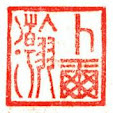天葬台
宰了
割了
烂捣碎了
燃一柱香
打一声呼哨
来了
就去了
来去都干干净净
Sky Burial
Cut
Scalped
Pounded into pieces
Light an incense
Blow the whistle
Come
Gone
Out and out
- 13 April 1986, Beijing
宰了
割了
烂捣碎了
燃一柱香
打一声呼哨
来了
就去了
来去都干干净净
Sky Burial
Cut
Scalped
Pounded into pieces
Light an incense
Blow the whistle
Come
Gone
Out and out
- 13 April 1986, Beijing
I discovered the Nobel laureate Gao Xingjian (高行健 ) last week via a reference in a novel I was reading. Sadly it seems that this poem is the only one to have survived his 're-education' during the Cultural Revolution and it does not appear that he has published any poetry since, although he has published 5 novels and many plays.
From an interview in the Guardian:
"Literature can't merely be an expression of self - that would be unbearable," Gao says. "You have to be critical not just of society and others, but of yourself: each subject has three pronouns: 'I', 'you', and 'he' or 'she'." He sees such self-scrutiny as a safeguard: "If you're not perfectly conscious of yourself, that self can be tyrannical; in relationship to others, anyone can become a tyrant. That's why no one can be a Superman. You have to go beyond yourself with a 'third eye' - self-awareness - because the one thing you cannot flee is yourself."
The interview also includes this excerpt from The Case for Literature, translated by Mabel Lee, published by Yale University Press:
"Without Isms is neither nihilism nor eclecticism; nor is it egotism or solipsism. It opposes totalitarian dictatorship but also opposes the inflation of the self to God or Superman. It hates seeing other people trampled on like dog shit. Without Isms detests politics and does not take part in politics, but is not opposed to other people who do. If people want to get involved in politics, let them go right ahead. What Without Isms opposes is the foisting of a particular brand of politics on to the individual by means of abstract collective names such as 'the people', 'the race' or 'the nation'."
All such thinking aside, I posted this because the poem touches me deeply. I read it and feel like weeping for the fragility of a human life, the pain and sadness of impermanence. And yet the simple beauty also. Come. Gone. Out and Out. Indeed! A reminder to let go, always to let go. Sadness? Let go. Pain? Let go. Happiness? Let go. Positive thoughts? Let go. Negative thoughts? Let go. Opinions? Let go. Hopes? Let go. Judgements? Let go. Emotions? Let go. This body? Let go. This mind? Let go. Light an incense.
Let go now, don't waste a precious moment, this life might be over sooner than we expect.
UPDATE: The Artsy website has wonderful page profiling Gao Xingjian and his artwork. Do check it out.
From an interview in the Guardian:
"Literature can't merely be an expression of self - that would be unbearable," Gao says. "You have to be critical not just of society and others, but of yourself: each subject has three pronouns: 'I', 'you', and 'he' or 'she'." He sees such self-scrutiny as a safeguard: "If you're not perfectly conscious of yourself, that self can be tyrannical; in relationship to others, anyone can become a tyrant. That's why no one can be a Superman. You have to go beyond yourself with a 'third eye' - self-awareness - because the one thing you cannot flee is yourself."
The interview also includes this excerpt from The Case for Literature, translated by Mabel Lee, published by Yale University Press:
"Without Isms is neither nihilism nor eclecticism; nor is it egotism or solipsism. It opposes totalitarian dictatorship but also opposes the inflation of the self to God or Superman. It hates seeing other people trampled on like dog shit. Without Isms detests politics and does not take part in politics, but is not opposed to other people who do. If people want to get involved in politics, let them go right ahead. What Without Isms opposes is the foisting of a particular brand of politics on to the individual by means of abstract collective names such as 'the people', 'the race' or 'the nation'."
All such thinking aside, I posted this because the poem touches me deeply. I read it and feel like weeping for the fragility of a human life, the pain and sadness of impermanence. And yet the simple beauty also. Come. Gone. Out and Out. Indeed! A reminder to let go, always to let go. Sadness? Let go. Pain? Let go. Happiness? Let go. Positive thoughts? Let go. Negative thoughts? Let go. Opinions? Let go. Hopes? Let go. Judgements? Let go. Emotions? Let go. This body? Let go. This mind? Let go. Light an incense.
Let go now, don't waste a precious moment, this life might be over sooner than we expect.
UPDATE: The Artsy website has wonderful page profiling Gao Xingjian and his artwork. Do check it out.





